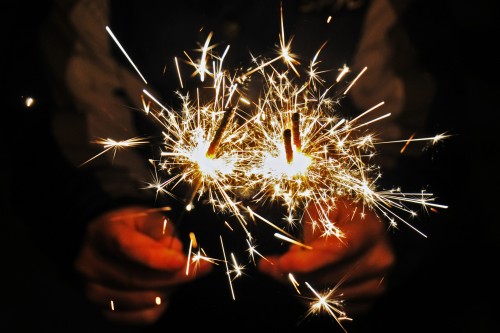 For people in recovery, New Year’s Eve can present a minefield of obstacles to staying sober that aren’t present on other holidays. There is the idea that celebrating the change from one year to the next is linked with popping corks and consuming alcohol. Anyone who plans a quiet evening or who doesn’t join a party may feel as though they are “missing out” on the festivities.
For people in recovery, New Year’s Eve can present a minefield of obstacles to staying sober that aren’t present on other holidays. There is the idea that celebrating the change from one year to the next is linked with popping corks and consuming alcohol. Anyone who plans a quiet evening or who doesn’t join a party may feel as though they are “missing out” on the festivities.
To keep your goal of staying sober on New Year’s Eve intact, you need to start with a plan. The strategies listed here will help you stay aware of the pitfalls at New Year’s Eve parties while giving you suggestions about avoiding the temptation to drink.
Tips for Staying Sober When Celebrating New Year’s Eve
Plan new traditions for your new lifestyle
You’re no longer the same person you were when you were drinking. Your New Year’s Eve celebration doesn’t have to be the same, either. Let go of any pressure to keep doing things the same way, “…because this is the way we’ve always done it.”
Look for family-friendly activities as an alternative parties
Instead of going to a party where you know alcohol will be served, consider going to a family-friendly activity in your community. Many of these are available for free or at low cost. Your local library, community news channel, and chamber of commerce website are all good sources of information for what’s going on in your community.
Attend parties where drinking is not the focus of the evening
Choose the types of parties you attend carefully. Dinner and dancing is a much better option than a cocktail party. If the evening’s festivities include some type of event or activity, as opposed to simply consuming alcohol, it’s a much better option.
Bring someone to the party with you
A good friend can keep you engaged in conversation so you don’t get bored while making sure you leave the party before you start to get tired. Both of these are red flags that you might be vulnerable to having a drink. The person you bring could be a friend, relative or your sponsor. Make sure the person you choose will support you in maintaining your sobriety throughout the evening.
Rehearse saying “no” to alcoholic drinks in advance
If you decide to attend a New Year’s Eve party and you know that alcohol will be served, go over how you will turn down an invitation to have an alcoholic drink. Keep in mind that you don’t have to explain your reasons for not wanting to drink alcohol.
There are plenty of people who don’t drink because they are taking medication, they are driving home after the party and don’t want their judgment to be impaired, or for religious reasons. A simple, “No, thank you, I’ll just stick to Diet Coke” will suffice. If anyone questions you about your choice, simply repeat your response. Then stop addressing the question.
Very few people will be rude enough to push the issue. If they do, you can always walk away from the conversation. Or leave the party entirely.
Limit the time you spend at a New Year’s Eve party
You don’t have to stay at a New Year’s Eve party until midnight and you don’t have to arrive early in the evening, either. Limiting the amount of time you spend around people who are drinking will make you less likely to be tempted to join them.
Plan something fun for New Year’s Day
The fun of New Year’s celebrations doesn’t have to be wrapped up into one evening. Plan an activity for New Year’s Day that you can look forward to. Friends and family can get together to see a movie, visit a museum, go ice skating or tobogganing (with hot chocolate afterward) or play cards board games together.
If the fun will continue into the next day (or beyond), there is less pressure to make one party or celebration the one time that attendees have to pull out all the stops. Without that pressure, you may feel less tempted to have a drink. It’s New Year’s Eve and it’s a party, but you have other times when you can have fun as well.
If you slip on New Year’s Eve…
Despite your best efforts, you may slip at a New Year’s Eve party and have a drink. Some people think that one drink means their entire sobriety is ruined and that there is nothing they can do but continue the slide into a full-blown relapse. This is not true.
If you slip on New Year’s Eve (or any other day of the year), recognize it for what it is. Call your sponsor. Go to a meeting. Do what you need to do to get your recovery back on track, including seeking professional addiction treatment.

